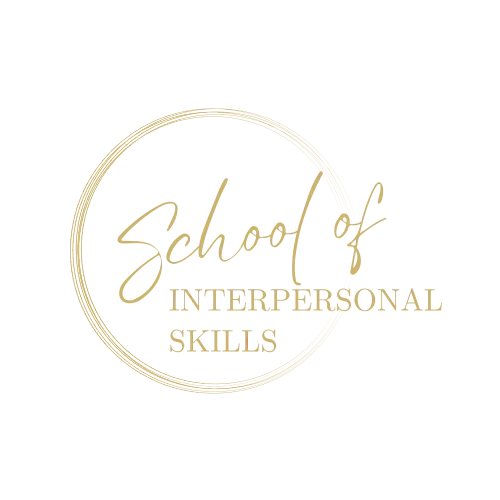A More Effective Way To Journal?
Insights Into A New Way Of Journaling
I find it helpful to journal. While I prefer to write long-hand, many years ago I wanted to be able to easily look back to identify themes or patterns in my life, so I decided then to use an electronic journaling tool.
As part of my preparation for this article, I went back to review many of the entries over the past 10 years. I made a few interesting discoveries and drew a few conclusions that I will share today.
First, I noticed the pattern of how much of my journaling was based on observations related to fear, confusion, maybe even shock related to previous life experiences. In the past, I’ve used journaling as a way of processing my emotions around what was happening in my life. I learned this way of journaling back in the early 90’s and never questioned it until a few years ago.
The vast majority of entries in my journal are me trying to understand-analyze what happened in the past. Now that I know what I believe about how trauma works, I know there is a better way to journal. I think chronically writing about the past is a symptom of being stuck “in” the trauma. In other words, journaling may actually be reflecting that your still in the trauma to a certain degree as you’re writing. That brought me to a new idea about how to journal I want to share today.
Use “One Breath Phrases” To Heal Faster
I think journaling like this can be a trap. First, a little background so you better understand how I’ve come to my conclusions. When I work with people, I have them practice “one breath phrases” to articulate their truth. The goal of this exercise is to get the body facing reality and out of the endless trap of analyzing the mind lures us into.
Making one breath statements help us to “unpack” what is going on unconsciously much faster. While clients may dislike saying what they say, when using “one breath statements,” they do feel stronger energetically. This tells me how important it is to take responsibility for our current situation. When we tell the honest truth, even when we don't like it, we stay in current reality and not send the wrong message to our mind which is always tracking our decisions. We think more clearly when we practice telling the truth. There is also something about saying the one breath phrases out loud that also makes them more powerful.
So I think there is more to “telling the one-breath truth” than meets the eye. Here are my thoughts. Early developmental trauma is about not having the resources necessary to process fear based or life threatening experiences.
When we are newly born and scared, we cry. If someone comforts us and “reassures” us, we calm down. That’s a resource. As responsible adults, when we tell the truth and “own it” completely in the present, we are being our own resource. This is something we didn’t know how to do when we were young while experiencing the difficult environment. Our brain literally wants away from the pain of facing reality sometimes.
As adults we can change this strategy and get better results. Every time we tell a “one breath truth” we are taking ownership and building resilience. In time it's easier to make better choices that lead to better outcomes. Do it a lot and you'll see what I mean. Having resilience increases self-regulation - the holy grail to feeling peaceful and safe in the world.
Having a resource now, when there was no perceived resource when we were little, is the key. More accurately perceived resources starts to dismantle the belief(s) that got formed in the original trauma. The more you perceive and believe in the resource, the quicker trauma loses its grip on you. We have to practice seeing and using the new resource to embody it and actually believe it intrinsically.
When there is a full acceptance of reality, the brain has a way of date coding and time stamping that experience. This is a critical part of healing. When we date code and time stamp our experience, the brain files events or experiences in the past. That's why when we process effectively, we can think about something and it no longer makes us have a fear based response.
The beliefs that got formed during the time of the trauma will also change. So later, if something reminds you of a previous traumatic experience, the feelings in your body no longer feel like the original traumatizing event. Instead, the brain see’s it in the past and it will have far less “charge” on it. This is one of the key pillars to healing permanently.
So I think there is more to “telling the one-breath truth” than meets the eye. Here are my thoughts. Early developmental trauma is about not having the resources necessary to process fear based or life threatening experiences.
When we are newly born and scared, we cry. If someone comforts us and “reassures” us, we calm down. That’s a resource. As responsible adults, when we tell the truth and “own it” completely in the present, we are being our own resource. This is something we didn’t know how to do when we were young while experiencing the difficult environment. Our brain literally wants away from the pain of facing reality sometimes.
As adults we can change this strategy and we get better results when we do. Every time we tell a “one breath truth” we are taking ownership and building resilience. Do it a lot and you'll see what I mean. Having resilience increases self regulation - the holy grail to feeling peaceful and safe in the world.
Having a resource now, where there was no perceived resource when we were little, is the key. Perceived resources starts to dismantle the belief(s) that got formed in the original trauma. The more you perceive and believe in the resource, the quicker trauma loses its grip on you.
When there is a full acceptance of reality, the brain has a way of date coding and time stamping that experience. This is a critical part of healing. When we date code and time stamp our experience, the brain files events or experiences in the past. That's why when we process effectively, we can think about something and it no longer makes us have a fear based response.
The beliefs that got formed during the time of the trauma can then also change. So later, if something reminds you of a previous traumatic experience the feelings in your body are no longer like the original traumatizing event is happening all over again. Instead, the brain see’s it in the past and it will have far less “charge” on it. This is one of the key pillars to healing permanently.
Declare What You Want
Another key tool we use in healing trauma is once we have acknowledge the “truth” we want to declare what we are wanting and make a request. For example, you may want to make a request to your partner or manager and ask for what you are wanting.
Knowing and then asking for what you want heavily influence how quickly a person resolves trauma in the body. In other words, the more you tell the truth and/or commit to a new behavior the quicker the mind takes on a new perspective, modifies it’s beliefs, and unconsciously supports your new behavior.
It may not seem like it in the moment, but every time you choose a new response and practice it, you are modifying your beliefs and behavior. It may seem slight in the beginning but over time your brain begins to believe the new way is safe and makes it the new “normal.”
The game we are playing is this: we are trying to align your unconscious mind to what you want consciously. This is a good definition of becoming conscious.
Is It Useful Then, To Journal?
The million dollar question then is “Is it useful to journal?”
The answer is, it depends.
A good question to ask yourself is, “How much of my time is spent on sorting out what happened in the past versus creating what I want now?”
As I’ve aged, I have a much higher value on my time. Where do I spend my time? On the things that bring me joy and excitement, on things related to other people’s agendas, or on bringing into creation new expressions that excite me?
The argument I’m proposing today is this, while I think it’s invaluable to journal and reflect, the question to consider is, “Is journaling serving me as I intended? Am I prolonging the resolution of the trauma trying to resolve itself in the way I write about it? Ask yourself, “Is this the way I want to spend my time?”
The Cash Value Of Pure Acceptance Is Liberation
What I find helpful about healing emotional issues is this: It’s the quality of facing and accepting what happened that matters more than words we can assign to it through journaling or talking about it.
If this claim is true, then it implies there may be a way to journal that accomplishes both – our need to express and still have acceptance and resolution.
Analyzing any trauma loses it’s value very quickly. While I think it’s very important to name and articulate what happened, I find it much more valuable to drop into the body experience as quickly as possible to get faster resolution.
For those of you not familiar with a body centered approach to healing, there is a big difference between feeling and tracking your experience in the body than analyzing everything.
Analyzing is a left brain function (left side of your brain as you look out into the world) whereas tracking the experience in your body is a right brain function. We want more of the right brain function if you want resolution faster.
One of the things I track in my sessions with people is how long the person wants to stay in the space of explaining things. This is a trap.
One of the biggest tips I can ever give you about processing emotions is this: The quicker you name what happened with one breath statements and then track what starts happening in your energetic body (emotions, sensations), the quicker the brain can date code and time stamp the information and put it in the past.
Feel What Is Happening As You Journal
So one proposal I’m making is when you journal, try feeling your body at the same time. Use “one breath” statements as you write. Regularly ask yourself, “Do I feel complete or is there more I want to say?”
Let’s say you feel complete. Take some time and FEEL that. Say to yourself, “this is want feeling complete feels like”, then drop deeply into your experience.
Over time, I have found that I go deeper faster as I practice this. It is much easier today for me to see where Im still “incomplete” with an issue. I also find I’m no longer “circling the fire” with the issue.
I feel much more resolved with this approach to journaling. The past few years of my journal reflect this exact process. Less entries about processing, shorter entries when I am processing, and less repeated notes related to the same issue.
Truthfully, I think I discovered it by accident. My external way of processing was unconsciously brought into my journaling.
Next week, I want to discuss the visioning process and how it relates to what we discussed today. I think I will make a lot more sense with the frameworks we’ve discussed today.
Be sure to share this article with your social network if you feel others could benefit.
Infinite blessings to you on your journey,
Ed


